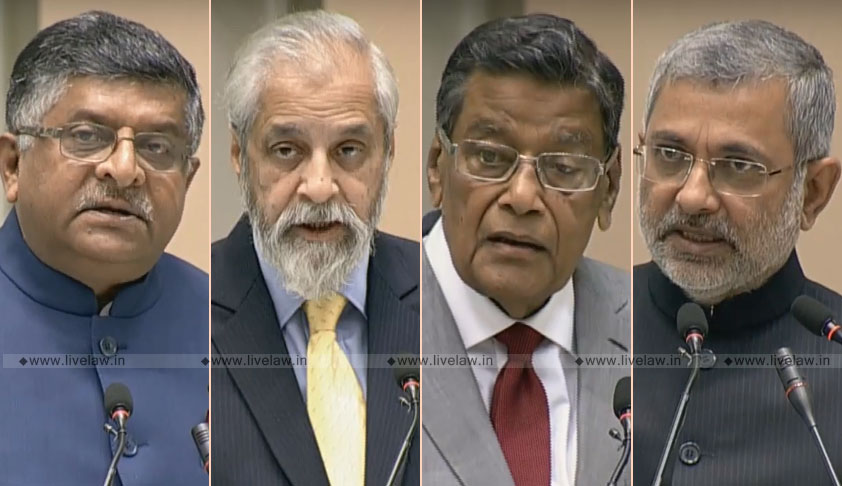Constitutional Morality Should Not Be Differed From Judge To Judge: Law Minister RS Prasad
MEHAL JAIN
26 Nov 2018 3:08 PM IST

Next Story
26 Nov 2018 3:08 PM IST
Law Minister Ravi Shankar Prasad pressed for judicially-manageable standards of constitutional morality- “when We talk of constitutional morality as a touchstone for governmental action, its nuances need to be outlined with greater clarity; it should not differ from judge to judge but there must be a consensus....in context of Articles 14 and 21, we interpret the constitutional silences...
